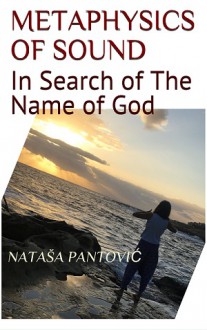



University Book Festival 2022 Books Launch Rudolf Ragonesi & Nataša PantovićNovelist #NatašaPantović and Poet Dr #RudolfRagonesi at Malta University Book Festival 2022 Launching 2 #NewBooks of AoL Consciousness Research 1. #Spring: Standing on the Banks and 2. #Metaphysics of Sound: In Search of the Name of #God. Live Reading. This inspiring event was organized by National Book Council (Malta) Music by #NormanCristina Bravo to all the creative souls infused by the #art spirit. Thx for enriching our lives!
Learning from a Scientific Paper, March 2021, Runes from Lány (Czech Republic) - The oldest inscription among Slavs. An Ancient Debate #archeology #Slavic Since the 19th century, Slavonic scholars had theorized that Slavs had achieved literacy pre-ChristArt, Education, Symbols and Signs, Spirituality
An Ancient Debate #Archeology #Slavic #History. Since the 19th century, Slavonic scholars had theorized that Slavs had achieved literacy pre-Christ.
A Czech archaeologist, Alena Slamova, was routinely cleaning the excavations from a dig when her sharp eye noticed unusual scratching on the surface of one fragment. So she has decided to examine it further with her colleagues, not dispose of it.

Start your #BlackFriday Now!
AoL #consciousness #books #Promotion Nov-Dec 2021
During the month of November and December for the occasion of #BlackFriday #Christmas 2021, #NewYearsDay, we mark the festivals for 8 consecutive days for each book giving You a Gift of Awareness and #divine #consciousnesss #books almost FREE







Learnings from Cyrillic Alphabet
History is a fascinating subject. Researching god or consciousness even more so! We read amazing accounts about ancient wisdom traditions such as Platonism, Orphism, Orthodox Christianity, and in China Taoism, and neo-Confucianism.

The insights from these traditions intersect with recent findings in metaphysics or biology. What brings the two into resonance is their mutual commitment to speak of the matter as alive. The four elements expressed through trinity that are defined by entangled triangle of relationships reflected in our language development.
Another visit to Serbia, this summer, and I was back researching the same scientific question, same puzzle that has certainly no answers yet it is an interesting exploration.
The genetic origins of Etruscans are mixed between aboriginal people of the region (Slavs?) and people from Europe predominantly Spain. The aboriginal population may have settled in Balkan millennia prior to the invasion.

The Etruscans occupied the region to the north of Rome, The Romans were their conquerors.
The Greek historian Herodotus tells us that the Etruscans came from Lydia. Sure enough historians argue who are the Lydians. Herodotus tells us of their ships and multitude, claiming that the half of the population left under the leadership of Tyrrhenus. Another Greek historian, Dionysius of Halicarnassus, in his Early History of Rome also claims that the Etruscan were the aboriginal inhabitants of their area. Slavs?
1. Northern Origins
2. Oriental (Near-eastern) Origins
The aboriginal peoples of North Italy could have been Slavs. The Adriatic Sea, the sea to the east of Italy, bordering Croatia, Slovenia and Montenegro, all Slavic states, was named after the Etruscan port of Adria. The funerary practices of the people of North Italy has the parallel to the Vinča Culture. The Etruscans cremated their dead, a practice also known in the Danube Culture, no grave yards have been found near the settlements for thousands of years.
This very vibrant culture hosted different nationalities. In the Etruscan ruins there are objects from Greece, North Africa, and southern France. The Etruscan traders brought those craft objects to Etruria. The major exports of Etruria was copper and iron from the local mines, the same found with their Northern neighbors.

The question became more intriguing when, in the nineteenth century, it was discovered that most of the languages of Europe belonged to one big language family called Indo-European but Etruscan was not one of them. Is this rightly so?
The linguist claim that Etruscan was not a member of the Indo-European language family was challenged by some Slavic archelogy and linguistic researchers. These Balkan Slavs, find the inspiring relationship between words, just introducing the now, in scientific circles, lost Š, Đ, Č, Ć, Ž, DŽ.

The analysis of the alphabet after reading this interesting book -
